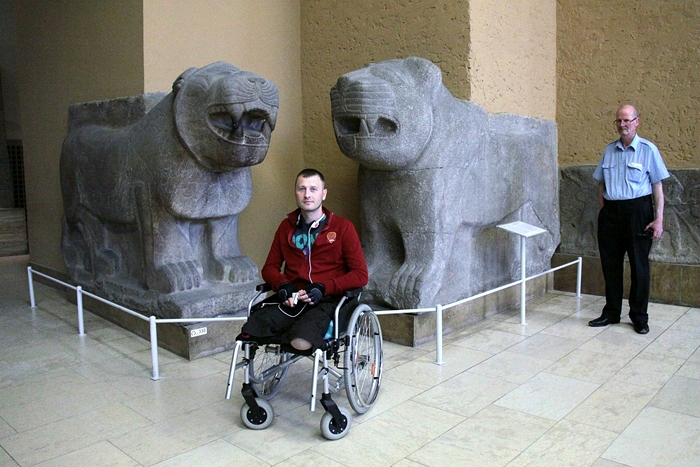I have reasons consider the statements made by Gernot Erler as political corruption.
Gernot Erler, Germany's special coordinator for Russia policy, in an interview with the Russian service of Germany's state-run broadcaster Deutsche Welle criticized Ukraine, accusing it of escalating the conflict with its occupier. The inclusion of this theme in the German official's statements is puzzling in itself. Erler is neither a journalist nor a political scientist. He is responsible for relations with Russia and not with Ukraine. His assignment is to promote German business in Russia and not to defend the Russian government or criticize the Ukrainian government. This is especially true when the criticism consists of a selection of direct quotes from Russian television or -- even worse -- is simply a translation of letters easily received from the Russian Embassy in Germany.
Erler's concern is understandable. If the Russian-Ukrainian conflict is not settled, relations between German and Russian business sooner or later will come to naught and his position will turn out to be unnecessary. However, the problem is not only in Ukraine. Putin is acting irresponsibly in many other parts of the world. Even if we "forget" about Crimea, as this senior German official is actually telling us we should, Putin will find another place for confrontation with the West. Because his goal is not Crimea. His goal is war with NATO. Is Erler not aware of this? Is it not discussed on Russian TV? Do not German businessmen report on it? Well, at least now he will know. But it does not mean that he will not continue acting as before. The Russians frequently arrange lucrative positions for friendly Western officials. An excellent example is Gerhard Schroder, the former Federal Chancellor of Germany.
Erler's recent interview is not his only one on Ukraine. He had already criticized Ukraine in another interview with German media. However, he must have worried that the recipients -- the leaders of Russia -- do not read German. And why Russian and not Ukrainian recipients ? There is also a Ukrainian service on German state-run radio. But Erler conspicuously gave the interview to the Russian service, and, contrary to the logic of his position, spoke about Ukraine. He is not serving; he is currying favors.
The main thesis of Erler's interview was in no way about recent events in Crimea, as could have been expected. Instead, he argued that it is not Russia but Ukraine that is failing to comply with the Minsk agreements. "We know that in principle Ukraine has found it difficult to implement certain things in the Minsk agreements. And all this time the Russian side has increasingly reiterated that it is complying with all the conditions, but that Ukraine has a problem doing so. And it appears (Russia's) conclusions are not that mistaken," he noted.
But the question arises: which requirements of the Minsk agreements has the Russian side fulfilled so far? Russia needed not several weeks but several months to implement the ceasefire and to withdraw heavy weapons. Meanwhile, shooting on the contact line still has not stopped. What laws and constitutional changes and other issues can be discussed while the shooting continues? The Minsk agreements were to be implemented by January 1, 2016. The fact that they have been postponed was because of Russia's' desire to maintain its military presence on Ukrainian soil and not at all the result of the lack of effectiveness of the Ukrainian parliament. The agreements have been extended largely as a result of the goodwill of Ukraine, Germany and France. Goodwill and not compulsion. And Mr. Erler should know that. Furthermore, in this situation it is not acceptable to state that "Crimea is not playing any role in the political processes right now," when it was precisely the annexation of Crimea and the international community's lethargic response to it that paved Putin's way to the Donbas war.
Several months ago, a senior European diplomat told me about Moscow's tactics regarding relations with the EU. According to him, Russia will do everything possible to soften the sanctions against its economy. Russia's effort will consist primarily in not complying with the Minsk agreements while accusing Ukraine of failing to do so. The diplomat even mentioned how this idea would be promoted --"through certain German Social Democrats." Mr Erler is a German Social Democrat, a party colleague of Mr. Schroeder and other well-known individuals. This is precisely why I have some reason to believe that similar statements are not examples of a political position but of political corruption.




